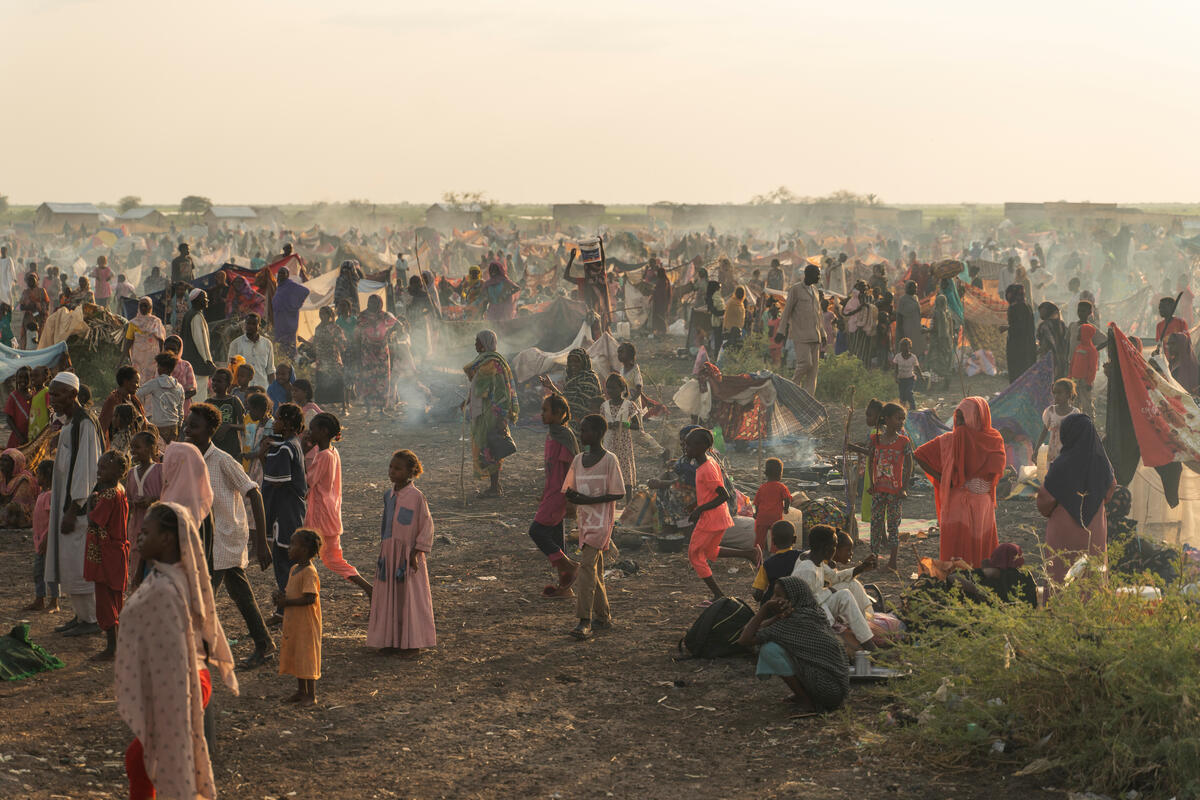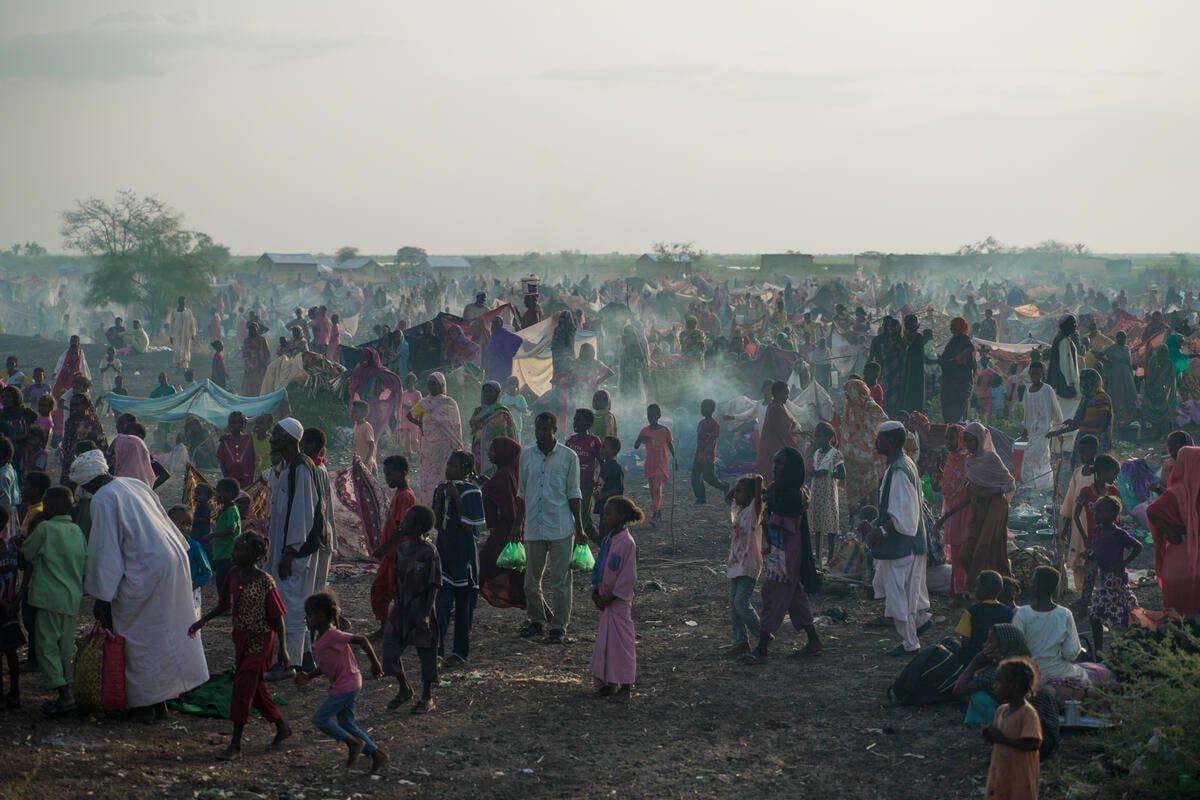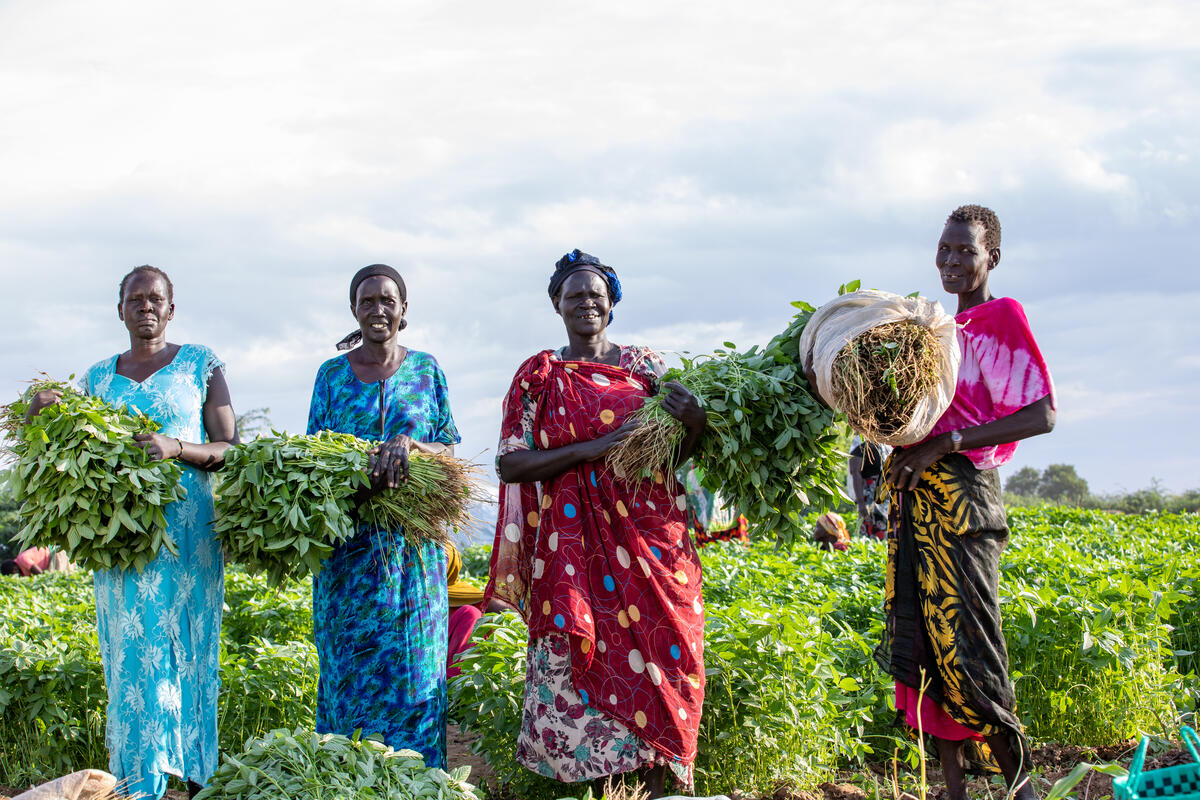Uganda: Looking in the eye of a conflict zone
Uganda: Looking in the eye of a conflict zone

MADI OKOLLO, Uganda, June 17 (UNHCR) - Looking at Madi Okollo settlement today, it's hard to imagine that it was a hole in the mud not long ago. Now it's sprouting grains and vegetables, largely due to the arrival of Sudanese refugees in the last two years.
Located 70 km outside Arua town in north-western Uganda, this settlement seems like a good place to lay down one's roots, especially for the thousands of Sudanese who have been on the run for years.
Many of them first fled conflict between the Sudanese government and rebel forces of the Sudan People's Liberation Army in Torit in the Equatorial province of South Sudan in 1993 and 1994. They found refuge in northern Uganda's Achol-Pii settlement, but were forced to escape again when rebels of the Lord's Resistance Army (LRA) attacked their homes in August 2002. They settled temporarily in Kiryandongo further south, and were moved to Madi Okollo in August 2003.
"There was nothing here before," said Doka Mudathir, a UNHCR worker at the settlement. "The infrastructure was built in the last two years - schools (before that, lessons were held under trees), a health centre, water points, a road. Now they can call this home, a place to live until they are ready to go back to Sudan."
In the eight villages that make up Madi Okollo - the smallest of four settlements in Arua district - every refugee family has been allocated a small plot to farm on. Sorghum, millet, cassava, sweet potatoes and other vegetables now sprout from the fertile soil.
But while life is flourishing in exile, the refugees still long for home. "They really want to go back. Home is home, and they are really tired of staying in exile, despite the conditions and the problems they have seen at home," said trauma counsellor Christine Yahoo.
Since the signing of a peace deal in January, UNHCR has been laying the groundwork for the voluntary return of half a million South Sudanese refugees in the region, set to start later this year. The majority of them - some 204,000 - are in Uganda.
"But some conditions are not in place for return," said Yahoo. "The roads should be cleared of landmines, and medical facilities should be in place. Some young ones are willing to go but they are worried about education, especially secondary schools."
Another obstacle to returning home is a recent spate of cross-border attacks by the LRA in areas like Torit in South Sudan. The violence has driven more than 18,000 South Sudanese into Uganda since early 2004.
These are some of the problems the UN High Commissioner for Refugees, António Guterres, will be examining when he travels to Uganda next week. His first field mission with UNHCR will take him to Imvepi and Ikafe refugee settlements near Madi Okollo, as well as Palorinya settlement hosting the more recent Sudanese arrivals, and settlements for Ugandans displaced by LRA fighting.
"Uganda today is at the eye of the conflict zone in Africa, with refugees coming daily from three of its five neighbouring countries - Sudan, Democratic Republic of the Congo and Rwanda," said UNHCR spokesman Rupert Colville, announcing Mr. Guterres' upcoming mission at a news briefing in Geneva on Friday. "At the end of March 2005, Uganda was hosting 234,084 recognized refugees. Since January 2004, some 30,400 refugees have sought asylum in Uganda."
To get a clearer picture of the refugee situation in Uganda, UNHCR recently started an exercise to re-register refugees using a new system called ProGres that collects and updates refugee information not through old registration forms but through a digital database.
At Madi Okollo settlement, the school was closed for a week in early June to host the technically sophisticated operation, which involved 16 laptop computers with web cams, and 66 aid workers, interviewers, data entry clerks and interpreters from the Ugandan Office of the Prime Minister, UNHCR and its implementing partner, the German Development Service.
As part of the exercise, the refugees had to present their ration cards and undergo family interviews to verify the identity of each family member. They then proceeded to another room where aid workers updated their biographical information - date of birth, place of origin, special protection needs for unaccompanied children, etc. Individual photos were taken, and together with the biodata collected, were fed into the digital database that can be accessed country-wide.
"The re-registration will give us an accurate number of the refugees here," said Igor Ciobanu, the UNHCR officer in charge of the re-registration. "Planning the work will be much easier, be it for more immediate tasks like providing food and relief items, or for the upcoming repatriation to South Sudan. The information also tell us if the refugees intend to return, and if yes, to which areas."
At the end of the week-long exercise, 6,964 South Sudanese refugees were registered at Madi Okollo settlement and each family received a new ration card. The work, however, does not stop there.
"The challenge will be to keep the information in the database regularly updated. Every birth, wedding or death will need to be recorded. This is an important source of information for UNHCR. It's only the beginning of the life of this database," said Ciobanu, noting that a refugee came to register her newborn baby just hours after the delivery.
His team has completed the re-registration exercise among Congolese refugees in the south-west, and is now travelling around settlements in the north, including Imvepi, Rhino, Ikafe, Adjumani and Pakelle.
By Ragnhild Ek in Madi Okollo, Uganda







